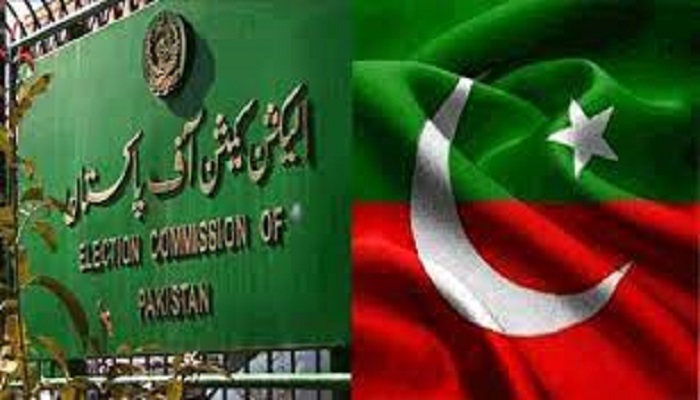ISLAMABAD: The Election Commission of Pakistan (ECP) announced on Tuesday the reassignment of reserved seats for women and minorities, previously claimed by the PTI-backed Sunni Ittehad Council (SIC), to other political parties.
This decision followed the rejection of SIC’s plea by the electoral authority the day before, requesting the allocation of reserved seats post a supposed ‘merger’ with Pakistan Tehreek-e-Insaf (PTI) for this specific purpose.
The ECP was urged to distribute these seats based on the inclusion of Pakistan Tehreek-e-Insaf (PTI)-supported candidates within their ranks. However, today, the election commission redistributed the reserved seats among different political parties.
In the Khyber Pakhtunkhwa Assembly, as per a notification, the ECP assigned one reserved seat each to Jamiat Ulema-i-Islam Pakistan, Pakistan Muslim League-Nawaz (PML-N), and Pakistan People’s Party (PPP). In the Sindh Assembly, the ECP designated reserved seats for women to Muttahida Qaumi Movement-Pakistan (MQM-P) and PPP. The selected candidates included Samita Afzal from PPP and Fouzia Hameed from MQM-P. Moreover, Sadhu Mal alias Surinder Valasai from PPP secured the minority seat in the Sindh Assembly.
For minorities, the ECP allocated three reserved seats to PML-N, PPP, and JUI-F, which were initially claimed by the Sunni Ittehad Council. Elected representatives on these minority seats included Neelam Meghwar from PML-N, Ramesh Kumar from PPP, and James Iqbal from JUI-F.
Following the Supreme Court’s decision deeming PTI’s intra-party polls “unconstitutional” and revoking its claim on the electoral symbol ‘bat’, PTI candidates participated in the elections as independents.
According to the Constitution, reserved seats are allotted to political parties based on the number of their lawmakers elected on general seats. The ECP had already received priority lists of candidates from the parties before the February 8 polls for their allocation.
This year’s situation differs from previous elections as the largest group of lawmakers comprises independents, rendering them ineligible for reserved seats. In total, there are 346 reserved seats for women, distributed across the National Assembly and provincial legislatures.
Similarly, there are 10 reserved seats for minorities in the National Assembly, along with additional reserved seats in the provincial assemblies of Punjab, Sindh, and Balochistan.
In a letter, the Sunni Ittehad Council claimed support from 86 independent candidates of the National Assembly, along with 107 independents from the Punjab Assembly, 90 from the K-P Assembly, and nine from the Sindh Assembly.



















